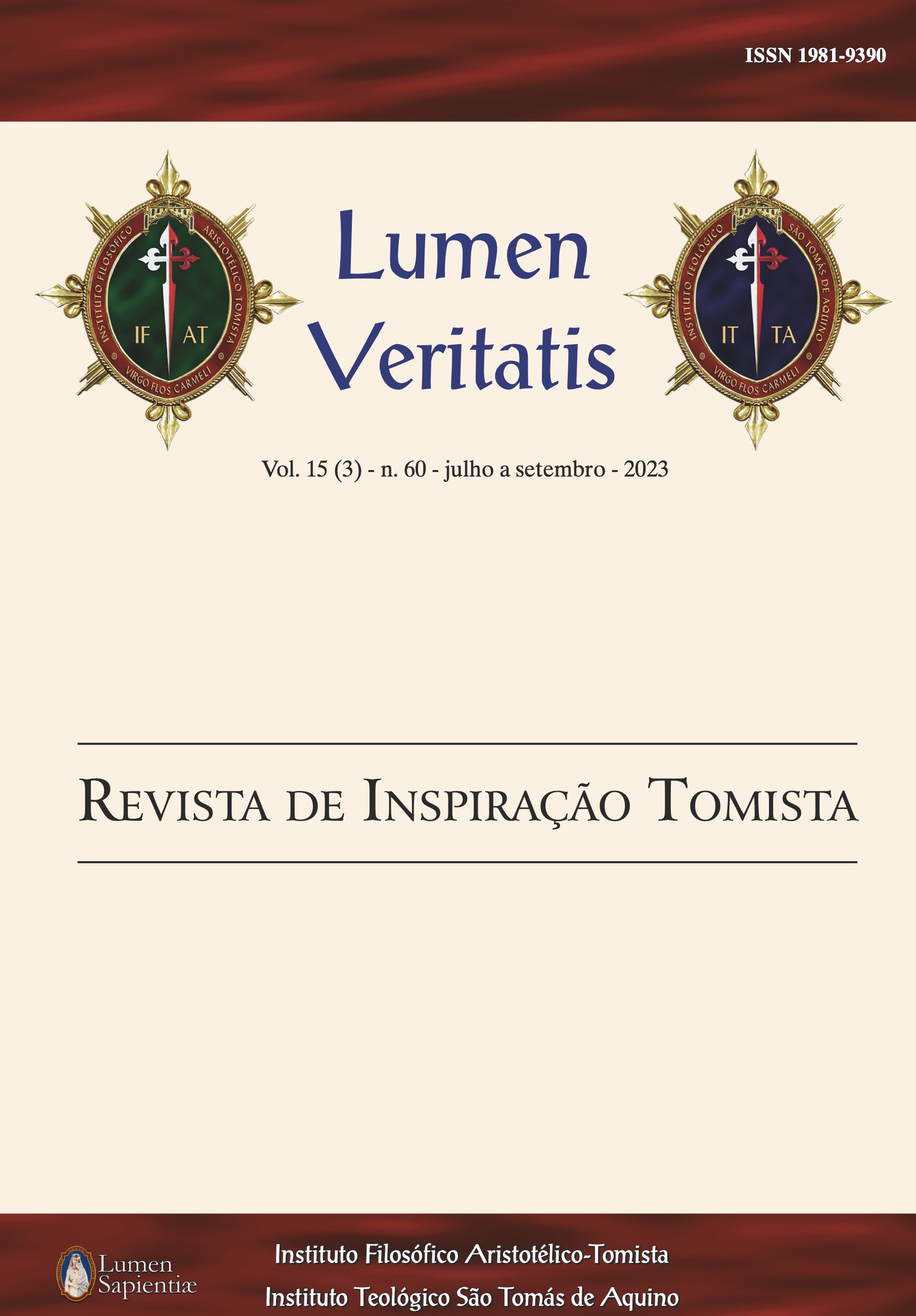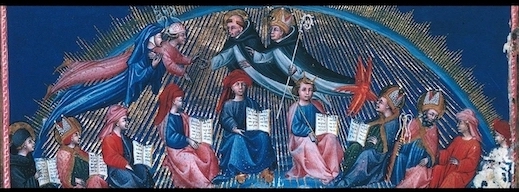O apetite natural no pensamento de Tomás de Aquino
Palavras-chave:
Deus, Exitus e Reditus, Pessoa Humana, Hilemorfismo, Apetite, Felicidade, God, Exitus and Reditus, Human Person, Hylomorphism, Appetite, HappinessResumo
Quando se fala de filosofia deve-se também falar da antropologia. De igual modo, quando se fala da pessoa humana, deve-se também falar da afetividade. Porém, quando se fala deste componente, geralmente tende-se a cair em dois extremos: o monismo (que reduz a pessoa humana apenas a esta componente, típica de todo o materialismo, sentimentalismo ou psicologismo) e o dualismo (especialmente o cartesiano, onde não se atribui qualquer importância à afetividade, considerando-a, assim, como uma componente que se opõe sempre à razão, ou seja, irracional). Já a concepção aristotélico-tomista oferece uma visão mais realista e válida com relação ao estudo da afetividade, pois a considera “não-racional” (ou seja, que não se origina na razão), devendo, por isso, ser integrada através da razão e da vontade (as duas faculdades espirituais da pessoa humana), para garantir a autorrealização da pessoa humana. Este artigo não pretende expor toda a visão de Tomás de Aquino sobre a afetividade – é sem dúvida um tema muito amplo –, mas optei por expor apenas a sua análise do apetite natural. A fim de atingir tal objetivo, inicialmente identificarei as limitações de Platão e Aristóteles com relação à sua concepção do desejo natural ou orexis. Posteriormente, analisarei os conceitos de exitus e reditus em Tomás de Aquino, com vistas a podermos, em seguida, compreender a sua noção de apetite natural, como a marca que Deus deixou impressa nas suas criaturas, para que elas possam, por sua vez, retornar a Ele, através do amor: Deus cria por amor e, através do amor, as suas criaturas podem retornar a Deus. Assim, quanto mais a criatura ama, mais perfeita ela se torna. No entanto, existe uma diferença entre o amor de Deus e o amor das criaturas, especialmente o amor da pessoa humana, que desenvolverei na parte final deste artigo.
When we speak of philosophy we must also speak of anthropology. Likewise, when treating about the human person, we must also treat about affectivity. However, when examining the latter, we tend to fall into two extremes: monism (which reduces the human person to just this component, typical of all materialism, sentimentalism, or psychologism) and dualism (especially the Cartesian dualism, where no importance is attributed to affectivity, thus considering it as a component that is always opposed to reason, that is, irrational). The Aristotelian-Thomistic idea offers a more realistic and valid visualization regarding the study of affectivity, as it considers it as “non-rational” (that is, it does not originate in reason), and must therefore be integrated through reason and will (the two spiritual faculties of the human person), to guarantee the self-fulfillment of the human person. This article does not intend to expose Thomas Aquinas’s entire view on affectivity – it is undoubtedly a very broad topic –, but I chose to expose only his analysis of
natural appetite. To achieve this objective, I will initially identify the limitations of Plato and Aristotle concerning their conception of natural desire or orexis. Then, I will analyze the concepts of exitus and reditus in Thomas Aquinas, so that we can understand his notion of the natural appetite, as a mark that God imprinted on His creatures, so that they can return to Him through love: God creates out of love and, through love, His creatures can return to Him. Thus, the more the creature loves, the more perfect it becomes. However, there is a difference between the love of God and the love of creatures, especially the love of the human person, a concept that I will develop in the final part of this article.






